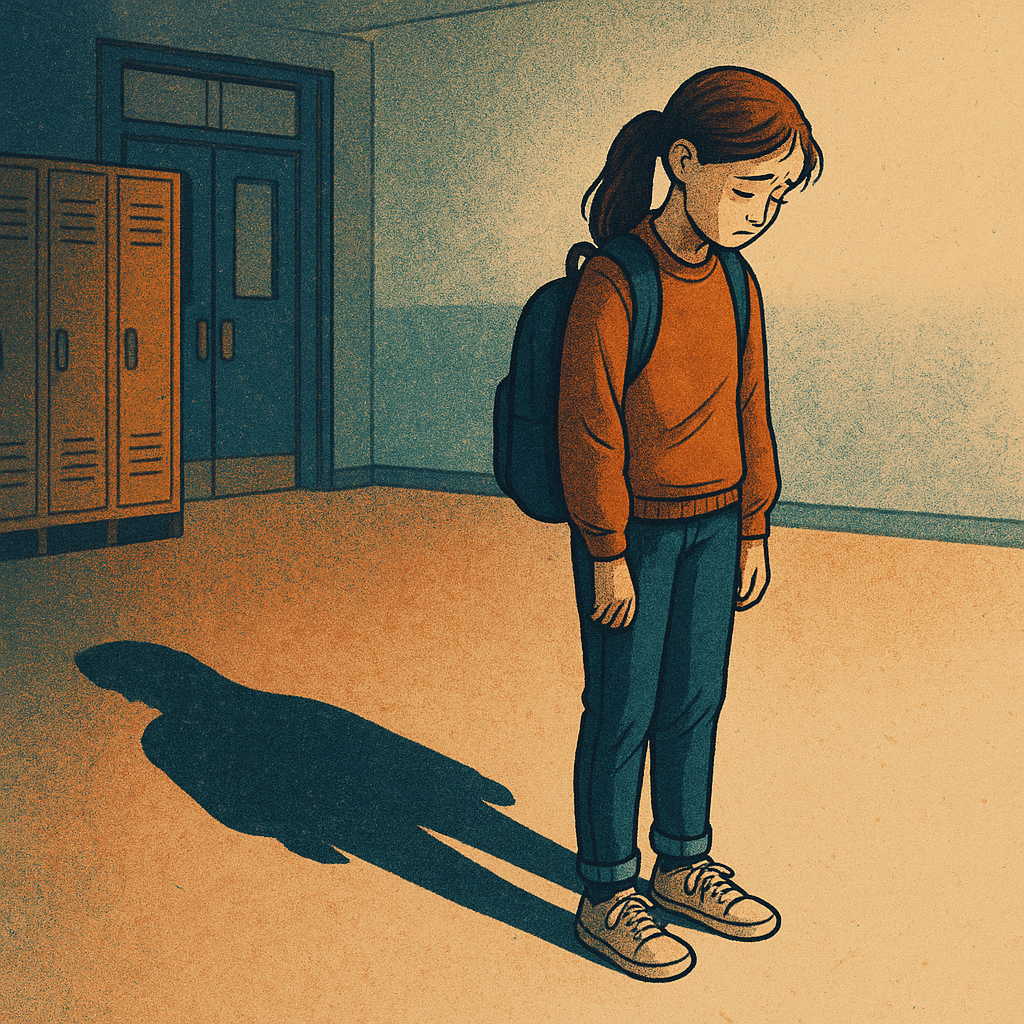The Long Shadow of Loneliness: How Feeling Alone as a Teen Impacts

Adult Life**
We often think of adolescence as a time of excitement, discovery, and social exploration. But for many teenagers, it's also a time marked by something quieter and more difficult to talk about: loneliness. And according to recent research, the impact of that loneliness doesn't disappear with time --- it can follow us for decades.
A groundbreaking 2025 study led by Dr. Eric S. Kim and colleagues, published in the Journal of Adolescent Health, takes a deep and data-driven look at this issue. Using a unique outcome-wide longitudinal approach, the researchers explored how loneliness experienced during teenage years affects multiple areas of health and well-being well into adulthood.
The results are clear --- and urgent.
What the Study Found
The research followed more than 10,000 American adolescents over a span of approximately 20 years, tracking not only their emotional states as teens but also their physical, psychological, and social health as adults.
Here's what the study revealed:
-
Teens who reported persistent loneliness were significantly more likely to experience depression, anxiety, and low psychological well-being in adulthood.
-
They also faced greater challenges in forming close relationships, and reported lower life satisfaction later in life.
-
Even physical health was affected: lonely teens were more likely to develop chronic health conditions, including asthma and sleep disturbances.
-
These outcomes remained significant even after controlling for socioeconomic background, physical health, and pre-existing mental health conditions.
Kim, E. S., Strecher, V. J., Ryff, C. D., et al. (2025). Loneliness During Adolescence and Subsequent Health and Well-Being in Adulthood: An Outcome-Wide Longitudinal Approach. Journal of Adolescent Health. https://doi.org/10.1016/j.jadohealth.2024.12.011
Why It Matters
This study makes one thing crystal clear: loneliness in adolescence is not just a phase. It's not something kids simply "grow out of." When left unacknowledged or untreated, it can shape the way young people experience the world --- how they relate to others, how they view themselves, and even how their bodies function.
For many teens, loneliness becomes a lens through which they interpret every social interaction. It erodes self-confidence, makes risk-taking in relationships feel dangerous, and can cause them to shut down rather than reach out. Over time, these patterns harden, and what started as a lonely semester becomes a lonely decade.
What We Can Do
At KindTalks, we believe early connection saves lives. That's why creating safe, inclusive, and empathetic spaces for teens to talk --- really talk --- is not a luxury. It's prevention.
This doesn't mean solving all of a young person's problems. Sometimes, it simply means giving them a chance to be heard. To know that what they feel is valid. To see that others --- even strangers --- understand them. The earlier we build these bridges, the stronger the foundation for lifelong mental and emotional health.
🌟 Final Thought
Loneliness in adolescence doesn't stay in adolescence.
But neither does hope.
If you're a young person feeling disconnected, or if you know one, take that first small step toward connection. It could be a conversation. A message. A shared silence. The ripple effect might just last a lifetime --- in the best possible way.
Let's talk. Let's listen. Let's grow stronger, together.
Related Articles
Loneliness is often imagined as a private, individual experience --- a quiet ache that lives inside us, separate from the world around us. But what if...
When we hear the word "loneliness," we often imagine a quiet evening alone or someone feeling left out at a party. But research is increasin...
We often assume that as we get older, we grow more resilient --- that the challenges of life somehow get easier with time. But for many adults over 50...